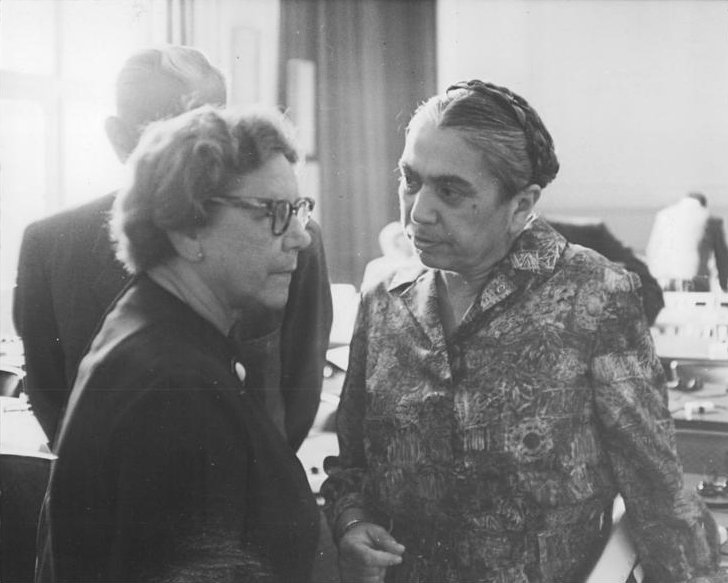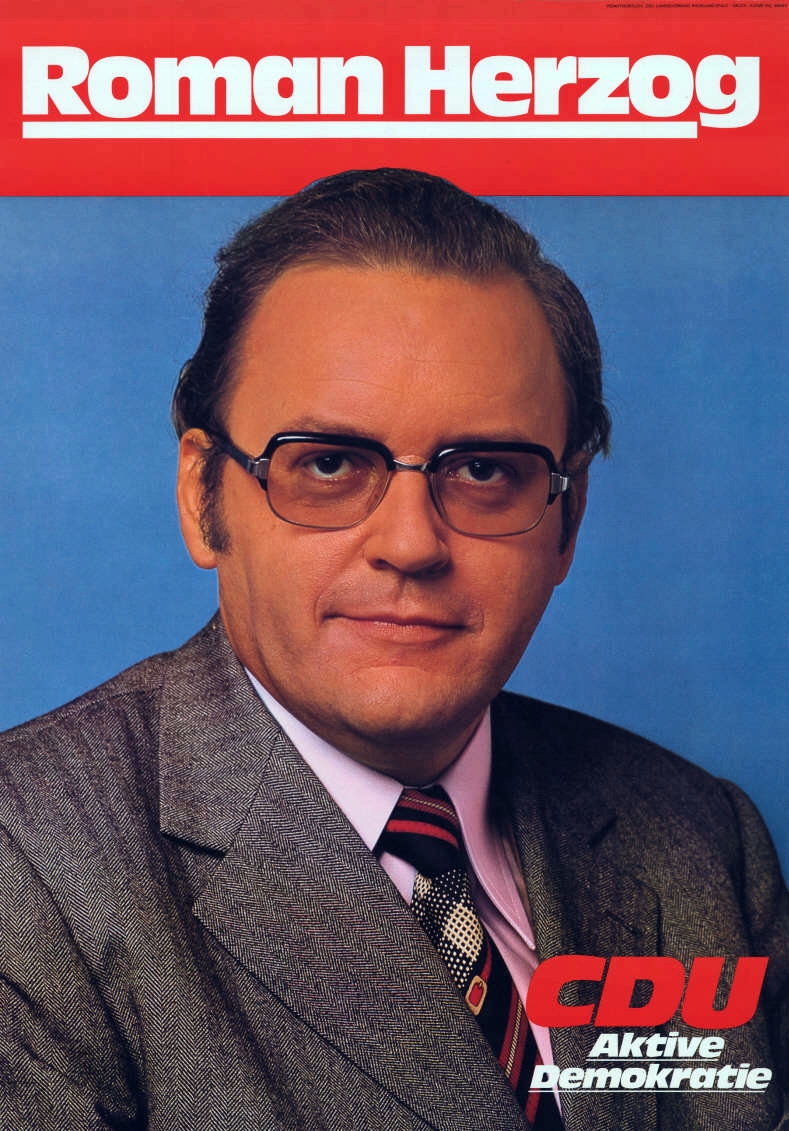|
Hilde Benjamin
Hilde Benjamin ( Lange; 5 February 1902 – 18 April 1989) was an East German judge and Minister of Justice of the German Democratic Republic. She is most notorious for presiding over the East German show trials of the 1950s, which drew comparisons to the Nazi Party's Volksgericht show trials under Judge Roland Freisler. Hilde Benjamin is particularly known for being responsible for the politically motivated prosecution of Erna Dorn and Ernst Jennrich. In his 1994 inauguration speech German President Roman Herzog cited Hilde Benjamin as a symbol of totalitarianism and injustice, and called both her name and legacy incompatible with the German Constitution and with the rule of law.Andrea Feth: ''Hilde Benjamin: 1902–1989,'' in Neue Justiz', 2/2002, p. 64 ff. Life Childhood and education Hilde Lange was born in Bernburg, Anhalt, and grew up in Berlin, in to a middle class and liberal minded Protestant family, the daughter of the engineer Heinz Lange and his wife, Ade ... [...More Info...] [...Related Items...] OR: [Wikipedia] [Google] [Baidu] |
Ministry Of Justice (East Germany)
Ministry may refer to: Government * Ministry (collective executive), the complete body of government ministers under the leadership of a prime minister * Ministry (government department), a department of a government Religion * Christian ministry, activity by Christians to spread or express their faith ** Minister (Christianity), clergy authorized by a church or religious organization to perform teaching or rituals ** Ordination, the process by which individuals become clergy * Ministry of Jesus, activities described in the Christian gospels * ''Ministry'' (magazine), a magazine for pastors published by the Seventh-day Adventist Church Music * Ministry (band), an American industrial metal band * Ministry of Sound, a London nightclub and record label Fiction * Ministry (comics), a horror comic book created by writer-artist Lara J. Phillips * Ministry of Magic, governing body in the ''Harry Potter'' series * Ministry of Darkness, a professional wrestling stable led by T ... [...More Info...] [...Related Items...] OR: [Wikipedia] [Google] [Baidu] |
Nazi Party
The Nazi Party, officially the National Socialist German Workers' Party (german: Nationalsozialistische Deutsche Arbeiterpartei or NSDAP), was a far-right political party in Germany active between 1920 and 1945 that created and supported the ideology of Nazism. Its precursor, the German Workers' Party (; DAP), existed from 1919 to 1920. The Nazi Party emerged from the extremist German nationalist, racist and populist paramilitary culture, which fought against the communist uprisings in post– World War I Germany. The party was created to draw workers away from communism and into nationalism. Initially, Nazi political strategy focused on anti– big business, anti-bourgeois, and anti-capitalist rhetoric. This was later downplayed to gain the support of business leaders, and in the 1930s, the party's main focus shifted to antisemitic and anti-Marxist themes. The party had little popular support until the Great Depression. Pseudoscientific racist theories were ... [...More Info...] [...Related Items...] OR: [Wikipedia] [Google] [Baidu] |
German Literature
German literature () comprises those literary texts written in the German language. This includes literature written in Germany, Austria, the German parts of Switzerland and Belgium, Liechtenstein, Luxembourg, South Tyrol in Italy and to a lesser extent works of the German diaspora. German literature of the modern period is mostly in Standard German, but there are some currents of literature influenced to a greater or lesser degree by dialects (e.g. Alemannic). Medieval German literature is literature written in Germany, stretching from the Carolingian dynasty; various dates have been given for the end of the German literary Middle Ages, the Reformation (1517) being the last possible cut-off point. The Old High German period is reckoned to run until about the mid-11th century; the most famous works are the ''Hildebrandslied'' and a heroic epic known as the '' Heliand''. Middle High German starts in the 12th century; the key works include '' The Ring'' (ca. 1410) and the poem ... [...More Info...] [...Related Items...] OR: [Wikipedia] [Google] [Baidu] |
Classical Music
Classical music generally refers to the art music of the Western world, considered to be distinct from Western folk music or popular music traditions. It is sometimes distinguished as Western classical music, as the term "classical music" also applies to non-Western art music. Classical music is often characterized by formality and complexity in its musical form and harmonic organization, particularly with the use of polyphony. Since at least the ninth century it has been primarily a written tradition, spawning a sophisticated notational system, as well as accompanying literature in analytical, critical, historiographical, musicological and philosophical practices. A foundational component of Western Culture, classical music is frequently seen from the perspective of individual or groups of composers, whose compositions, personalities and beliefs have fundamentally shaped its history. Rooted in the patronage of churches and royal courts in Western Europe, surv ... [...More Info...] [...Related Items...] OR: [Wikipedia] [Google] [Baidu] |
Anhalt
Saxony-Anhalt (german: Sachsen-Anhalt ; nds, Sassen-Anholt) is a state of Germany, bordering the states of Brandenburg, Saxony, Thuringia and Lower Saxony. It covers an area of and has a population of 2.18 million inhabitants, making it the 8th-largest state in Germany by area and the 11th-largest by population. Its capital is Magdeburg and its largest city is Halle (Saale). The state of Saxony-Anhalt was formed in July 1945 after World War II, when the Soviet army administration in Allied-occupied Germany formed it from the former Prussian Province of Saxony and the Free State of Anhalt. Saxony-Anhalt became part of the German Democratic Republic in 1949, but was dissolved in 1952 during administrative reforms and its territory divided into the districts of Halle and Magdeburg. Following German reunification the state of Saxony-Anhalt was re-established in 1990 and became one of the new states of the Federal Republic of Germany. Saxony-Anhalt is renowned for its rich ... [...More Info...] [...Related Items...] OR: [Wikipedia] [Google] [Baidu] |
Rechtsstaat
''Rechtsstaat'' (lit. "state of law"; "legal state") is a doctrine in continental European legal thinking, originating in Dutch and German jurisprudence. It can be translated into English as " rule of law", alternatively "legal state", state of law, "state of justice", or "state based on justice and integrity". A ''Rechtsstaat'' is a constitutional state in which the exercise of governmental power is constrained by the law. It is closely related to "constitutionalism" while is often tied to the Anglo-American concept of the rule of law, but differs from it in also emphasizing what is just (i.e., a concept of moral rightness based on ethics, rationality, law, natural law, religion, or equity). Thus it is the opposite of ''Obrigkeitsstaat'' or ''Nichtrechtsstaat'' (a state based on the arbitrary use of power), and of '' Unrechtsstaat'' (a non-''Rechtsstaat'' with the capacity to become one after a period of historical development). In a ''Rechtsstaat'', the power of ... [...More Info...] [...Related Items...] OR: [Wikipedia] [Google] [Baidu] |
Basic Law For The Federal Republic Of Germany
The Basic Law for the Federal Republic of Germany (german: Grundgesetz für die Bundesrepublik Deutschland) is the constitution of the Federal Republic of Germany. The West German Constitution was approved in Bonn on 8 May 1949 and came into effect on 23 May after having been approved by the occupying western Allies of World War II on 12 May. It was termed "Basic Law" (german: Grundgesetz) to indicate that it was a provisional piece of legislation pending the reunification of Germany. However, when reunification took place in 1990, the Basic Law was retained as the definitive constitution of reunified Germany. Its original field of application (german: Geltungsbereich)—that is, the states that were initially included in the Federal Republic of Germany—consisted of the three Western Allies' zones of occupation, but at the insistence of the Western Allies, formally excluded West Berlin. In 1990, the Two Plus Four Agreement between the two parts of Germany and all four Alli ... [...More Info...] [...Related Items...] OR: [Wikipedia] [Google] [Baidu] |
Injustice
Injustice is a quality relating to unfairness or undeserved outcomes. The term may be applied in reference to a particular event or situation, or to a larger status quo. In Western philosophy and jurisprudence, injustice is very commonly—but not always—defined as either the absence or the opposite of justice. The sense of injustice is a universal human feature, though the exact circumstances considered unjust can vary from culture to culture. While even acts of nature can sometimes arouse the sense of injustice, the sense is usually felt in relation to human action such as misuse, abuse, neglect, or malfeasance that is uncorrected or else sanctioned by a legal system or fellow human beings. The sense of injustice can be a powerless motivational condition, causing people to take action not just to defend themselves but also others who they perceive to be unfairly treated. Injustice within legal or societal standards are sometimes referred to as a ''two-tiered system''. Re ... [...More Info...] [...Related Items...] OR: [Wikipedia] [Google] [Baidu] |
Totalitarianism
Totalitarianism is a form of government and a political system that prohibits all opposition parties, outlaws individual and group opposition to the state and its claims, and exercises an extremely high if not complete degree of control and regulation over public and private life. It is regarded as the most extreme and complete form of authoritarianism. In totalitarian states, political power is often held by autocrats, such as dictators (totalitarian dictatorship) and absolute monarchs, who employ all-encompassing campaigns in which propaganda is broadcast by state-controlled mass media in order to control the citizenry. By 1950, the term and concept of totalitarianism entered mainstream Western political discourse. Furthermore this era also saw anti-communist and McCarthyist political movements intensify and use the concept of totalitarianism as a tool to convert pre-World War II anti-fascism into Cold War anti-communism. As a political ideology in itself, totalitarian ... [...More Info...] [...Related Items...] OR: [Wikipedia] [Google] [Baidu] |
Roman Herzog
Roman Herzog (; 5 April 1934 – 10 January 2017) was a German politician, judge and legal scholar, who served as the president of Germany from 1994 to 1999. A member of the Christian Democratic Union (CDU), he was the first president to be elected after the reunification of Germany. He previously served as a judge of the Federal Constitutional Court, and he was the President of the court 1987–1994. Before his appointment as a judge he was a professor of law. He received the 1997 Charlemagne Prize. Early life and academic career Roman Herzog was born in Landshut, Bavaria, Germany, in 1934 to a Protestant family. His father was an archivist. He studied law in Munich and passed his state law examination. He completed his doctoral studies in 1958 with a dissertation on Basic Law and the European Convention on Human Rights. He worked as an assistant at the University of Munich until 1964, where he also passed his second juristic state exam. For his paper ''Die Wesensmerkmale d ... [...More Info...] [...Related Items...] OR: [Wikipedia] [Google] [Baidu] |
Ernst Jennrich
Ernst Jennrich (15 November 1911 – 20 March 1954) worked as a gardener with an agricultural/horticultural cooperative in East Germany. He was a family man with four young sons. He did not smoke or drink: he could not even shoot straight. Overnight on 19/20 June 1953 police arrived to arrest him. He was able to look in on the room where his four children slept. Wolfgang, the eldest and Ernst, the second youngest, were awake. He was given time to reassure them that he had done nothing wrong (''"Euer Vater hat nichts Unrechtes getan"'') before being taken away. Ernst Jennrich was executed at 4 AM on 17 March 1954. The party leadership had been badly unnerved by the short-lived popular revolt of June 1953. The authorities needed scapegoats following reports of police deaths. Jennrich was executed following a direct written instruction to the court from Hilde Benjamin, the Minister of Justice. On 20 August 1991 the original court verdict was overturned and Ernst Jennrich was (posthu ... [...More Info...] [...Related Items...] OR: [Wikipedia] [Google] [Baidu] |






